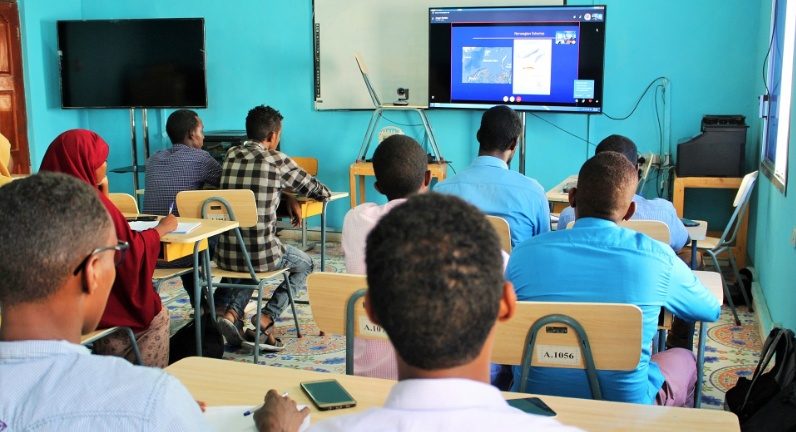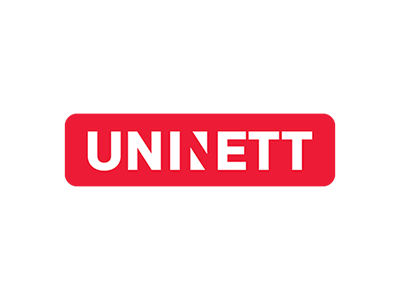
Bridging 7000+ km to teach fisheries management
Education , Technology ,
The distance between Mogadishu in Somalia, and Tromsø in Norway is 7753 km. But despite of the vast distance separating them, Tromsø, just North of the Arctic Circle, and Mogadishu, facing the Indian Ocean, have something in common. They are both coastal towns with all the ocean’s food resources right at their feet.
But while Tromsø has a large and well-developed fishing industry, Mogadishu has a long way to go before being able to fully exploit the riches of the Indian Ocean.
A long-distance teaching collaboration is now laying the groundwork for a change:
According to a news release published by UiT – The Arctic University of Norway, fishery management experts from Tromsø are teaching Somali students how to exploit their marine resources. The teaching collaboration features interactive live lectures allowing for two-way communication, questions and discussions.
Specialist knowledge
Somalia wants to develop its own fishing industry instead of letting other countries harvest the marine resources in Somalian waters. While large European and Chinese fishing vessels are operating far from the coast, local fishermen only have small boats with a very limited range.
It requires specialist knowledge to change that situation, and researchers from UiT’s College of Fishery Science have extensive experience in putting together teaching programmes for developing countries, tailor-made to fit their specific needs.
The courses are based on the International Fisheries Management masters programme developed by the College of Fishery Science. So far, students from more than 30 countries have graduated from the programme, which applies a multidisciplinary approach to managing marine resources, touching on biological, economic and social processes, legal and organizational frameworks, and political issues as well.
Networked classroom
In the past teachers have travelled to developing countries to teach local students. The College of Fishery Science is now exploring a new and more effective model using the connectivity provided by Research & Education networks to bridge the distance between Tromsø and Mogadishu, and establish an almost “live” interactive connection between teachers and students.
A pilot project in the spring of 2019 has carried out a course in basic fisheries management for students at the City University of Mogadishu, including biology, legislation, international conventions regarding marine resources, organizations that help build a fishing industry etc.
Jorge Santos, professor at UiT and international fisheries management teacher, explains:
“The collaboration between the City University and the College of Fishery Science was initiated by one of my former students now working with the UN to develop the Somali fishing sector. He told me that they had a new and very energetic university there, but it was very isolated. I told him, that if they had an Internet connection we could reach them. So we designed a teaching programme customized towards local conditions, and we delivered it digitally using Skype. There were no pre-recorded videos. Everything was interactive and happened “live”, with the students asking questions and discussing the presentations.
“The students did a great job. They were excellent people and the most engaged students we could have. They worked hard on their assignments and presentations through Skype, and they really did very, very well. It was a top collaboration, and also we managed to engage the local teachers. They were present at all the lectures and they helped a lot. So we are really excited about all of it.”

Opportunity to interact
According to the UiT news release, students and staff from the City University have received the new, networked classroom connecting Mogadishu and Tromsø well.
“I feel it gave me access to knowledge that is not yet available in our country due to the lack of experts in marine studies here. What I liked best was the opportunity to interact with the teacher and to do my own presentations,” says one of the students Fardowsa Mohamud Weheliye.
Dr. Jamal Hassan, head of the Marine Department at the City University, elaborates:
“It is not often that Somali students get the opportunity to interact with academics in other countries, so these courses have created a lot of interest here. It demonstrates the potential of using video conferencing to share international expertise with teaching institutions in developing countries, and I hope this is just the beginning of a fruitful collaboration.”
Significant advantages
According to Jorge Santos, the pilot project has a number of significant advantages:
“It reduces traveling, which puts less strain on the teachers, and it enables us to increase our reach with the same amount of resources. I think this is the future of international teaching collaboration, and we are going to develop this remote teaching concept further, e.g. combining interactive sessions with pre-recorded sessions for the students to view when it fits into their schedule.
“We have done a successful pilot project, and now we want to go ahead with it in collaboration with development agencies and embassies. In Somalia we would like to upgrade the initial fisheries course with a number of additional modules, and we will try to develop similar courses together with other countries. As an example I could contact a university in Myanmar and ask them, what exactly are your needs. Then I could put together a package with experts from my faculty or from other countries and give the local students exactly what they need, instead of them having to go through a broad, two-year programme here in Norway.”
(Images: Mogadishu City University)
For more information please contact our contributor(s):



